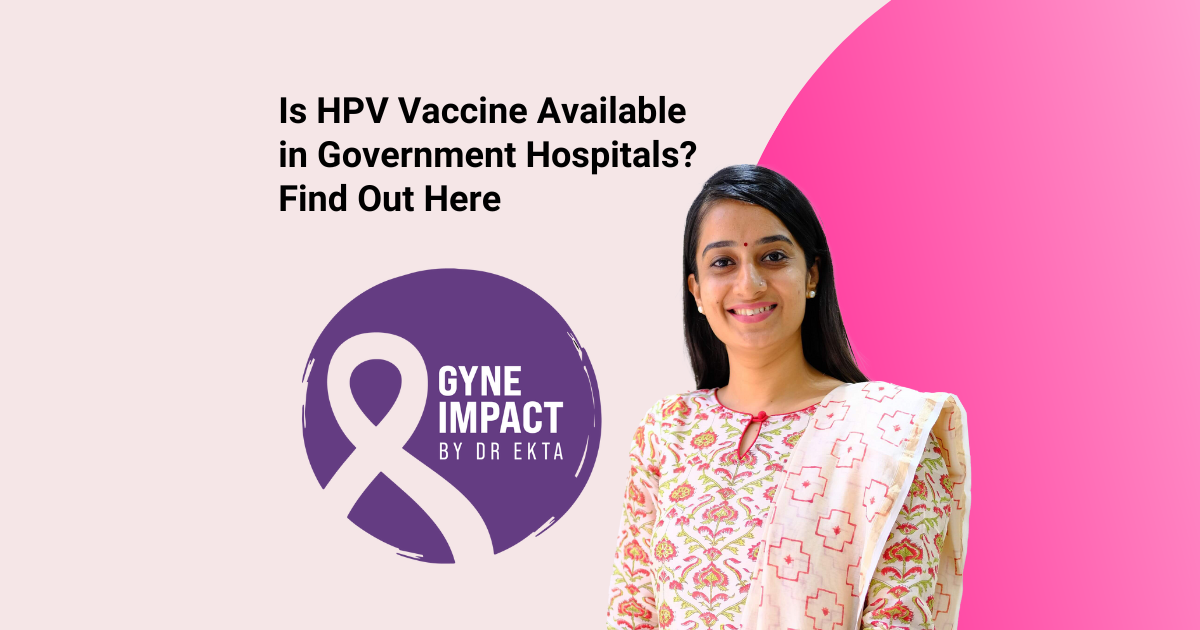One of the most frequently asked questions I encounter is whether the HPV vaccine is accessible through government hospitals. It’s a valid concern, particularly when we talk about public health measures aimed at preventing diseases like cervical cancer. The Human Papillomavirus (HPV) vaccine is one of the most effective tools we have to fight against HPV-related cancers, yet there remains a significant gap in awareness about its availability, particularly in India.
In this blog, I will provide clarity on where and how you can access the HPV vaccine, especially in government hospitals, and why it is an essential step toward safeguarding your health or that of your loved ones.
What is the HPV Vaccine?
The HPV vaccine is designed to protect against certain strains of the Human Papillomavirus, which are responsible for causing cervical cancer and other cancers, such as vaginal, vulvar, anal, and even throat cancers.
There are two primary types of HPV strains:
- Low-risk strains that may cause warts but are not cancerous.
- High-risk strains like HPV-16 and HPV-18, which are responsible for the majority of cervical cancer cases.
The vaccine targets these high-risk strains, significantly reducing the risk of developing these cancers later in life.
Why is the HPV Vaccine Important?
Cervical cancer is one of the most common cancers among women in India. As per the World Health Organization (WHO), cervical cancer accounts for approximately 16% of cancer deaths among Indian women. Yet, it is a preventable disease, and the HPV vaccine is at the forefront of prevention.
When administered before exposure to the virus (typically before the onset of sexual activity), the HPV vaccine offers robust protection. It has the potential to save thousands of lives annually by reducing the incidence of cervical and other HPV-related cancers.
Is the HPV Vaccine Available in Government Hospitals?
Yes, the HPV vaccine is available in many government hospitals and health centers across India. Over the past few years, public health initiatives have made efforts to increase the accessibility and affordability of the vaccine.
Key Facts About Availability in Government Hospitals:
- Free Vaccination Drives: In some states, the HPV vaccine is administered free of cost to adolescent girls as part of school-based immunization programs.
- Subsidized Rates: Even if not free, many government hospitals offer the vaccine at a significantly subsidized rate compared to private hospitals.
- Awareness Campaigns: Several states, including Gujarat, Tamil Nadu, and Delhi, have launched awareness programs to promote HPV vaccination.
However, the availability might vary depending on the state and district. It’s always advisable to check with your local government hospital or health department for the most accurate and updated information.
How to Access the HPV Vaccine in Government Hospitals
If you’re considering getting the HPV vaccine through a government hospital, here’s what you should do:
- Contact Your Local Health Center
Reach out to your nearest primary health center (PHC) or government hospital to inquire about the availability of the vaccine. They will provide information about the vaccination schedule and eligibility criteria. - Look for State-Sponsored Programs
Some state governments have rolled out specific HPV vaccination programs targeting adolescent girls in schools. If you have school-going children, inquire with the school administration about such initiatives. - Check Eligibility
The HPV vaccine is typically recommended for girls and boys aged 9 to 14 years. However, it can also be administered up to the age of 45 with the advice of a healthcare provider. - Schedule an Appointment
Government hospitals often require prior scheduling for vaccinations to manage availability efficiently. Make sure to book an appointment and carry necessary identification documents.
Types of HPV Vaccines Available in India
In India, three types of HPV vaccines are commonly used:
- Cervarix: Protects against HPV-16 and HPV-18.
- Gardasil: Protects against HPV-6, HPV-11, HPV-16, and HPV-18.
- Gardasil-9: Offers broader protection against additional HPV strains.
Government hospitals predominantly use Cervarix or Gardasil due to their cost-effectiveness.
Challenges in Accessing the HPV Vaccine
Despite efforts to make the vaccine widely available, there are some challenges:
- Lack of Awareness: Many families are unaware of the vaccine’s existence or its importance in cancer prevention.
- Cultural Barriers: In some communities, discussions around HPV and cervical cancer are still considered taboo.
- Limited Availability: While urban centers may have better access to the vaccine, rural areas often face shortages.
My Recommendations
Here’s how you can make an informed decision about getting the HPV vaccine:
- Educate Yourself: Read up about HPV and its risks.
- Talk to Your Healthcare Provider: Discuss any concerns or doubts with your doctor.
- Start Early: Vaccination is most effective when administered before exposure to the virus.
- Advocate for Awareness: Encourage others in your community to learn about the HPV vaccine and its benefits.
Final Thoughts
The HPV vaccine is a game-changer in the fight against cervical cancer and other HPV-related diseases. Government hospitals in India are working toward making it more accessible, but it’s up to us to take the first step by seeking out the right resources and information.
I strongly advocate for preventive measures like the HPV vaccine. It’s not just an investment in your health, it’s a step toward eliminating cervical cancer for future generations. If you have questions or concerns, don’t hesitate to reach out to your local healthcare provider or government hospital.
Remember, prevention is always better than cure. The HPV vaccine is your chance to take control of your health and make a difference for yourself and your loved ones.

